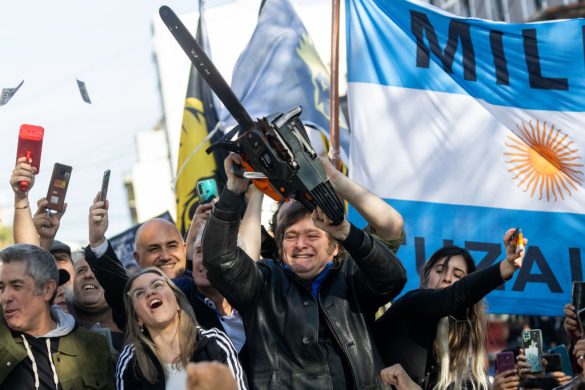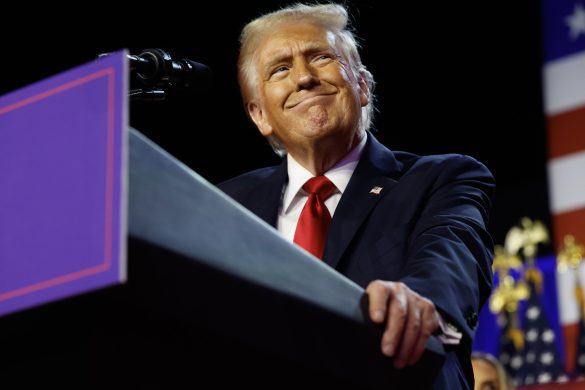KOMMENTAR
Verdens rige lande bør ikke stoppe milliardstøtten til den Globale Fond for bekæmpelse af aids, tuberkulose og malaria uanset rapporter i medierne om omfattende svindel med fondens penge i flere u-lande.
Sådan skriver 2 forskere mandag på websitet for Dansk Institut for Internationale Studier (DIIS). Det er Stefano Ponte, der er Ph.D. og seniorforsker på DIIS, og Lisa Ann Richey, som er professor i International Udvikling på Roskilde Universitet.
De har sendt deres indlæg (på engelsk) til u-landsnyt, og her er det:
Why Countries Should Not Suspend Support to The Global Fund
Corruption and The Global Fund
During the past week, the Associated Press (AP) released a story picked up by 250 media outlets worldwide with headlines such as in the US, “Fraud plagues global health fund backed by Bono”. Here in Denmark, the headlines stated similarly, “Bonos fond ramt af svindel – Danmark dropper støtten”- se også http://www.u-landsnyt.dk/nyhed/25-01-11/danmark-stopper-penge-til-global-fond
.
What The Global Fund Does
The Global Fund to Fight AIDS, Tuberculosis and Malaria is an institution that allocates (fordeler) public and private contributions toward global health. It works in 150 countries and has committed (givet tilsagn om) 21,7 billion US dollar (i støtte) since its inception (stiftelse) to programs for prevention and treatment of the three diseases.
The Fund controls the second largest allocation (sum) of development aid money in the world, after the UN system itself. The Fund’s proce-dures for applying for money and for reporting its usage are notoriously difficult to follow for local collaborators (samarbejdspartnere).
Is 34 Million dollar a Lot to Lose?
Allegations (beskyldninger om) of extensive fraud (svindel) are based on reports by the Global Fund itself, whose Inspector General’s Office has undertaken audits or investigations in 33 of the 145 countries where the Fund currently has grants, and found a misappropriation (misbrug) or unsubstantiation of funds in the amount of 34 million dollar.
The Fund’s Executive Director Michel Kazatchkine issued an immediate statement saying that
“While all fraud is unacceptable and the Global Fund is taking strong and firm action to recover such losses, one should keep in mind that this amount represents 0,3 percent of the total amount of 13 billion dollar disbursed (udbetalt) to countries by the Global Fund so far”.
The reality is that from the information available and the investigations that are not yet complete, we can not know whether 34 million is a lot, a little or even representative of all of The Fund’s disbursements – nor do we know if this is better or worse than the records of other development organizations or European donors.
The Perils of Transparency (farerne ved gennemskuelighed)
There is actually no new information in the claimed “recent” discoveries about corruption in The Global Fund. The reports of all of these incidents had already been publicly posted, as well as the measures taken by The Fund to attempt to recover the money.
While the pledge of Professor Kazatchkine for “zero tolerance” on corruption is laudable (rosværdig), it is highly unrealistic to expect to prevent all corruption in any organization that distributes multi-million dollar grants.
In spite of The Fund’s commitment toward public transparency and accountability, it is being punished by some donor countries. This week Denmark, Sweden and Germany announced that they have suspended their contributions to the Fund in light of corruption charges.
Yet, how many donor organizations post unedited reports of their Inspector General’s on their website for view by the public?
The Perils of Celebrity
Would the worldwide news media spread with great interest a story of corruption in the United Nations or perhaps the World Bank? Probably not.
The Global Fund is now labeled “celebrity backed”, and almost no news story of this recent corruption saga has been without reference to the Irish rockstar Bono and the celebrity philanthropist Bill Gates.
Celebrities draw attention and stir emotion. Since the 2006 launch of Product RED by Bono and Bobby Shriver (of the famous US Kennedy political clan) to raise money from consumers to support The Global Fund, the institution has been much more visible in the media.
But now, the opportunity to link banal allocations of international development aid mismanagement with global celebrities has led to increased negative publicity for The Fund. People all over the world are interested in what is happening to “Bono’s Fund”.
Yet, as is often the case with celebrity-driven media, the AP story actually provides little information on what is going on in The Global Fund or the countries where it works, but we are emotionally driven by the call to take action.
Unfortunately, some significant donor governments have responded to this call, perhaps without considering the implications of less transparency. Germany, Sweden and Denmark should take this opportunity to press for better accountability and more transparency.
(slut)
Se også http://www.plusnews.org/Report.aspx?ReportId=91791
—————-
Ponte & Richey are the authors of a book on Bono’s Product (RED) initiative entitled “Brand Aid: Shopping Well to Save the World”. The book will be released in March by University of Minnesota Press (USA)
Yderligere oplysninger hos:
Lisa Ann Richey, Ph.D.
Professor of International Development Studies
Dept. of Society and Globalisation, Roskilde University
PO Box 260, 4000 Roskilde
Tlf. (direkte) 46 74 26 27, fax 46 74 30 33 og e-mail: [email protected]
http://forskning.ruc.dk/site/research/richey_lisa_ann(2696)/














